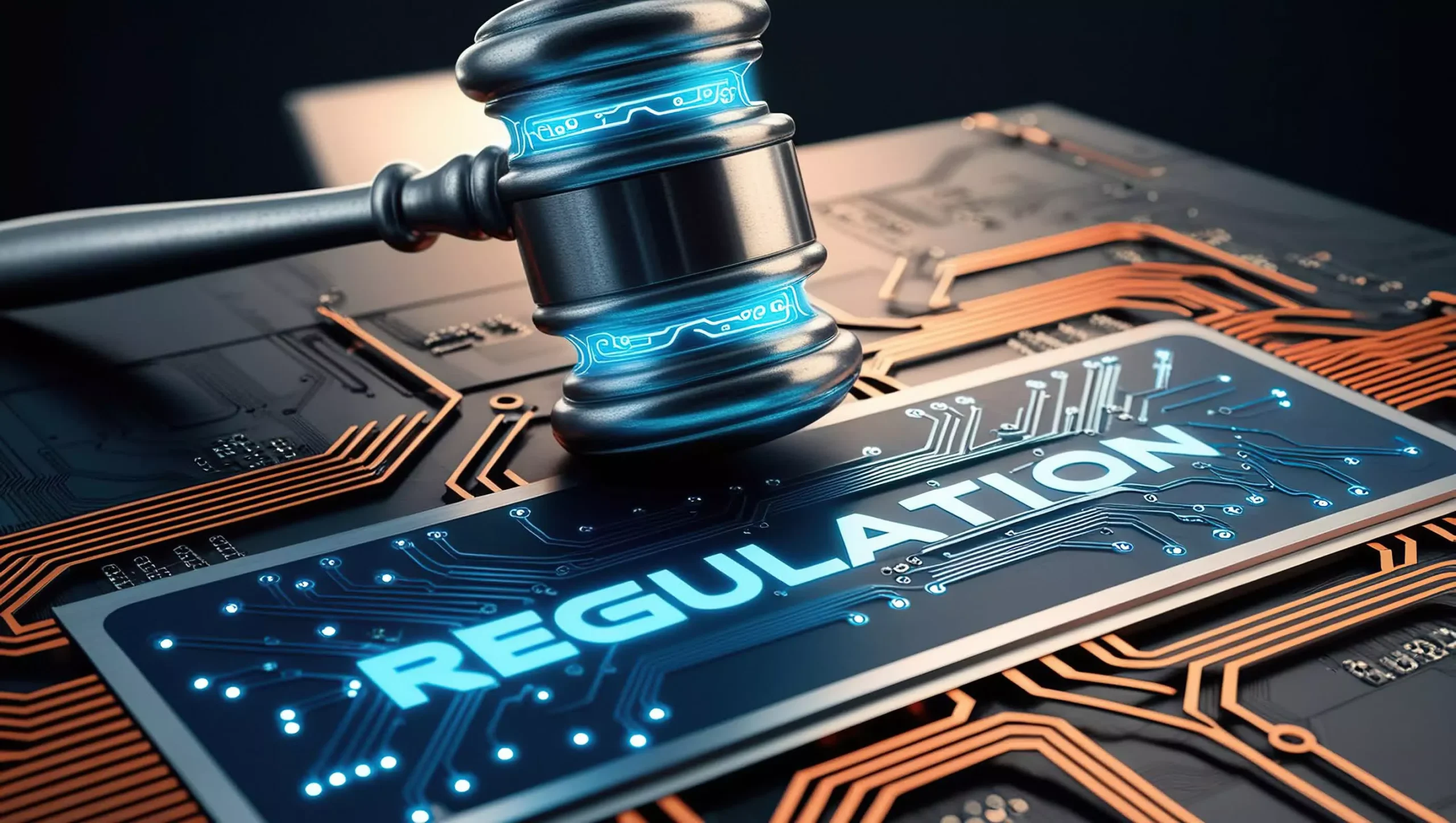Washington, D.C. — In a significant shift from its previous restrictions on semiconductor technology exports, the United States government is preparing to loosen its export rules on AI chips to allow shipments to allied countries—on the condition that they are operated by approved U.S.-based entities. This policy change represents a tactical recalibration from the now-stalled “AI Diffusion Rule,” signaling a nuanced approach to balance national security concerns with the demands of a globally interconnected Artificial Intelligence ecosystem.
This decision is expected to unlock opportunities for key allies such as Japan, South Korea, the United Kingdom, and select European Union countries to legally obtain cutting-edge AI chips—critical components in applications ranging from advanced machine learning models to autonomous defense systems and next-generation data centers.
From Containment to Coordination
The U.S. has long grappled with the dual imperatives of maintaining a competitive edge in AI tools while curbing potential adversarial access to strategic technologies. The now-frozen AI Diffusion Rule sought to sharply restrict the export of high-end GPUs and AI accelerators, primarily targeting China and other nations considered a national security risk. However, its broad enforcement scope raised concerns about hampering tech development among allied nations and even U.S. companies operating abroad.
By narrowing its focus, the new rule permits AI chip exports to allies provided they’re used under the supervision of U.S.-vetted operators. This change is poised to benefit leading chipmakers like NVIDIA and AMD, who can now sell advanced products without triggering compliance red flags, as long as the chips are integrated into cloud services or platforms that comply with the approved list.
Industry insiders suggest this may reignite collaboration with tech firms in the EU and Asia, where innovation has stagnated due to supply chain bottlenecks and regulatory ambiguity.
Strategic and Economic Motivations
At the heart of this pivot is a multifaceted strategy. Geopolitically, the U.S. seeks to consolidate its technological alliances amid growing competition with China, which is aggressively pursuing self-sufficiency in semiconductor manufacturing and AI development. Domestically, the administration also recognizes the economic value of boosting chip exports to safe partners, which could help offset declining revenues in traditional overseas markets.
“The new export rules are both a security shield and an economic lever,” said Thomas Breyer, a cybersecurity analyst at the Center for Strategic Technologies. “It sends a message that America will support its allies in the race for AI supremacy—provided everyone plays by the rules.”
This revision aligns with a broader Biden administration policy focused on Cybersecurity and technological resilience. The National Security Council has emphasized the importance of “trusted tech ecosystems,” in which vetted cloud operators and infrastructure providers serve as gatekeepers for sensitive hardware.
Industry Reactions and Opportunities for Allied Nations

In Tokyo, Seoul, London, and Berlin, the announcement has been met with cautious optimism. For instance, Japanese companies like NEC and SoftBank have already signaled interest in expanding their data science and AI capabilities, which were previously constrained due to chip availability.
European firms, particularly those working in defense tech and blockchain-based smart infrastructure, now see a path to integrate U.S.-made chips into their platforms legally. The EU’s Gaia-X initiative—aimed at building a secure and sovereign digital infrastructure—could now gain traction with the inclusion of these critical components.
“This is not just about chips,” said Marie Fontaine, a senior AI policy advisor in Brussels. “It’s about enabling an entire ecosystem—from secure cloud computing to AI model training to Web3 application deployment.”
Compliance and the Role of Approved U.S. Operators
A critical component of this regulatory update is the stipulation that AI chips must be operated under the auspices of approved U.S. entities. This could include cloud giants such as Amazon Web Services, Microsoft Azure, and Google Cloud, all of whom are expected to undergo further scrutiny before qualifying.
This provision ensures that the U.S. retains some degree of oversight and traceability in how these chips are used—even in foreign territories. It also opens the door for AI-powered SaaS and infrastructure startups to provide intermediary platforms, acting as bridges between U.S. chipmakers and international users.
To encourage adoption, the Department of Commerce is reportedly working on an expedited certification process for companies that seek approval under the new export regime.
Implications for National Security and AI Governance
While the rule change offers clear commercial benefits, some lawmakers and watchdog organizations have raised concerns about potential loopholes. Critics argue that once AI chips are deployed abroad—even under U.S. operators—there’s no absolute guarantee they won’t be reverse-engineered or redirected.
To mitigate this, the administration plans to integrate blockchain-based supply chain tracking and remote access controls to monitor chip usage. Additionally, advanced telemetry will be embedded into newer GPU models to allow real-time compliance reporting.
“This is where AI News and governance intersect,” said Dr. Rina Joshi, a research fellow at the Brookings Institution. “We’re witnessing the U.S. attempt to define a global framework for responsible AI tech sharing, without compromising national defense.”
You can read more about developments like these on platforms like Tech Thrilled, which regularly cover AI policy shifts and their global impact.
Effects on Global AI Competition
For China, the announcement could be perceived as both a warning and an opportunity. While still barred from acquiring the latest chips, China may now observe how the U.S. manages controlled exports as a case study to inform its own policy framework.
Meanwhile, countries that qualify under the new rules could enjoy an innovation boost, especially in sectors like gadgets, financial analytics, autonomous vehicles, and tokenomics platforms.
In the competitive landscape of tech news, the focus now shifts to how effectively the U.S. can enforce its oversight mechanisms while scaling cooperation.
What’s Next: Policy Implementation and Industry Adoption
The Commerce Department is expected to publish a formal list of approved operators and eligible countries within the next two months. In the meantime, industry leaders are preparing compliance audits and revamping their procurement strategies.
Cloud providers are already in talks with partners in Europe and Asia to design hosting environments that meet U.S. export control standards. This may include new certifications, secure zones within cloud infrastructure, and periodic auditing by U.S. cybersecurity inspectors.
Companies interested in participating must not only meet technical requirements but also align with U.S. values around data privacy, algorithmic transparency, and ethical AI deployment.
Conclusion: A Balanced Approach to AI Export Policy
The U.S. government’s updated policy on AI chip exports marks a critical inflection point in the global AI race. By selectively enabling its allies while reinforcing operational safeguards, the U.S. is attempting to walk a fine line between strategic caution and commercial ambition.
This policy is likely to influence how future export controls are structured—not just in AI, but also in adjacent fields like quantum computing, WebDev, and biotech.
Whether it becomes a model for responsible tech sharing or a source of regulatory friction will depend on how well it is implemented in practice. For now, the world is watching how this recalibration reshapes alliances, ignites machine learning innovation, and defines the next chapter of AI geopolitics.
Stay tuned to Tech Thrilled for more in-depth analysis and updates on this evolving story.
Call to Action:
Want to stay ahead in the evolving world of AI policy and global tech trends? Subscribe to our newsletter, leave a comment below, and share this story with your network. Your engagement helps foster a smarter, more informed tech community.
